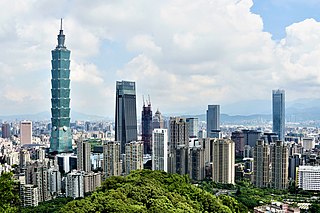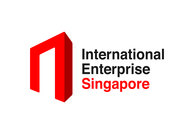
The economy of Mauritius is a mixed developing economy based on agriculture, exports, financial services, and tourism. Since the 1980s, the government of Mauritius has sought to diversify the country's economy beyond its dependence on just agriculture, particularly sugar production.

The economy of New Zealand is a highly developed free-market economy. It is the 52nd-largest national economy in the world when measured by nominal gross domestic product (GDP) and the 63rd-largest in the world when measured by purchasing power parity (PPP). New Zealand has one of the most globalised economies and depends greatly on international trade, mainly with China, Australia, the European Union, the United States, and Japan. New Zealand's 1983 Closer Economic Relations agreement with Australia means that the economy aligns closely with that of Australia. Among OECD nations, New Zealand has a highly efficient and strong social security system; social expenditure stood at roughly 19.4% of GDP.

The economy of Taiwan is a highly developed free-market economy. It is the 8th largest in Asia and 20th-largest in the world by purchasing power parity, allowing Taiwan to be included in the advanced economies group by the International Monetary Fund. Taiwan is notable for its rapid economic development from an agriculture-based society to an industrialised, high-income country. This economic growth has been described as the Taiwan Miracle. It is gauged in the high-income economies group by the World Bank. Taiwan is one of the most technologically advanced computer microchip and high-tech electronics industries makers in the world.

The economy of Vietnam is a developing mixed socialist-oriented market economy. It is the 33rd-largest economy in the world by nominal gross domestic product (GDP) and the 26th-largest economy in the world by purchasing power parity (PPP). It is a lower-middle income country with a low cost of living. Vietnam is a member of the Asia-Pacific Economic Cooperation, the Association of Southeast Asian Nations and the World Trade Organization.

The Overseas Private Investment Corporation (OPIC) was the United States Government's Development finance institution until it merged with the Development Credit Authority (DCA) of the United States Agency for International Development (USAID) to form the U.S. International Development Finance Corporation (DFC). OPIC mobilized private capital to help solve critical development challenges and in doing so, advanced the foreign policy of the United States and national security objectives.

A foreign direct investment (FDI) refers to purchase of an asset in another country, such that it gives direct control to the purchaser over the asset. In other words, it is an investment in the form of a controlling ownership in a business, in real estate or in productive assets such as factories in one country by an entity based in another country. It is thus distinguished from a foreign portfolio investment or foreign indirect investment by a notion of direct control.
The Australian Trade and Investment Commission, or Austrade, is the Australian Government's trade, investment and education promotion agency which was also given responsibility for tourism policy, programs and research from 2013. Austrade was established under the Australian Trade Commission Act 1985. It is a non-corporate Commonwealth entity under the Public Governance, Performance and Accountability Act 2013, and a statutory agency under the Public Service Act 1999. Austrade is part of the Foreign Affairs and Trade portfolio.
The economic history of the Republic of Turkey had four eras or periods. The first era had the development policy emphasizing private accumulation between 1923 and 1929. The second era had the development policy emphasized state accumulation in a period of global crises between 1929 and 1945. The third era was state-guided industrialization based on import-substituting protectionism between 1950 and 1980. The final, era was the opening of the economy to liberal trade in goods, services and financial market transactions since 1981.
The Taiwan Miracle or Taiwan Economic Miracle refers to Taiwan's rapid economic development to a developed, high-income country during the latter half of the twentieth century.

Foreign direct investment in Iran (FDI) has been hindered by unfavorable or complex operating requirements and by international sanctions, although in the early 2000s the Iranian government liberalized investment regulations. Iran ranks 62nd in the World Economic Forum's 2011 analysis of the global competitiveness of 142 countries. In 2010, Iran ranked sixth globally in attracting foreign investments.

International Enterprise Singapore was a statutory board under the Ministry of Trade and Industry of the Government of Singapore. It facilitated the growth of Singapore-based companies overseas and promoted international trade.

SARIO, Slovak Investment and Trade Development Agency is a government agency established in the Slovak Republic in 2001, which works under the direction of the Ministry of Economy of the Slovak Republic.
Trade is a key factor of the economy of China. In the three decades following the dump of the Communist Chinese state in 1949, China's trade institutions at first developed into a partially modern but somewhat inefficient system. The drive to modernize the economy that began in 1978 required a sharp acceleration in commodity flows and greatly improved efficiency in economic transactions. In the ensuing years economic reforms were adopted by the government to develop a socialist market economy. This type of economy combined central planning with market mechanisms. The changes resulted in the decentralization and expansion of domestic and foreign trade institutions, as well as a greatly enlarged role for free market in the distribution of goods, and a prominent role for foreign trade and investment in economic development.
Board of Investment (BOI) (Urdu: ہیئتِ پاکستان برائے سرمایہ کاری) is the premier investment promotion agency of Pakistan working under the administrative control of the Prime Minister’s Office and is mandated to promote and facilitate both local & foreign investment. The Board of Investment is a member of the World Association of Investment Promotion Agencies (WAIPA).
Foreign trade in India includes all imports and exports to and from India. At the level of the Central Government, trade is administered by the Ministry of Commerce and Industry. Foreign trade accounted for 48.8% of India's GDP in 2018.
Scottish Development International (SDI) is the international arm of the Scottish Government and Scotland's enterprise agencies, Scottish Enterprise, Highlands and Islands Enterprise and South of Scotland Enterprise. The agency supports international investors in Scotland to help set up and grow in Scotland as a gateway to wider European and global markets.
The Hong Kong – New Zealand Closer Economic Partnership Agreement is a bilateral free trade agreement signed between the Hong Kong Special Administrative Region of China and New Zealand in March 2010. It is the first bilateral free trade agreement on goods and services that Hong Kong SAR has signed with a foreign country. Hong Kong-New Zealand CEPA complements New Zealand's Free Trade Agreement (FTA) with China two years before, and enhances the potential for Hong Kong to be used as a platform for trade into the Mainland China. Hong Kong is a Special Administrative Region of China but has autonomy in matters of trade.
Business Sweden is a not-for-profit, strategy consultancy with a purpose to help Swedish companies to grow their global sales and international companies to invest and expand in to Sweden. .The organisation has two owners: The Government of Sweden and the private business sector in Sweden. The government is represented by the Ministry for Foreign Affairs and the business sector by the Swedish Foreign Trade Association. The CEO of Business Sweden is Jan Larsson.

Enterprise Singapore (EnterpriseSG) is a statutory board under the Ministry of Trade and Industry of the Government of Singapore. It was formed on the 1st of April, 2018, to support Singapore small and medium enterprise (SMEs) development, upgrade capabilities, innovate, transform, and internationalize. It also supports the growth of Singapore as a trading and startup hub, and continues to be the national standards and accreditation body.
The information and communications technology industry in New Zealand is a rapidly growing sector. The technology sector overall employs over 120,000 people, and technology is New Zealand's third largest export sector, accounting for $8.7 billion of exports, with information technology creating 50,000 full time jobs, and about $1 billion in IT services exports.










